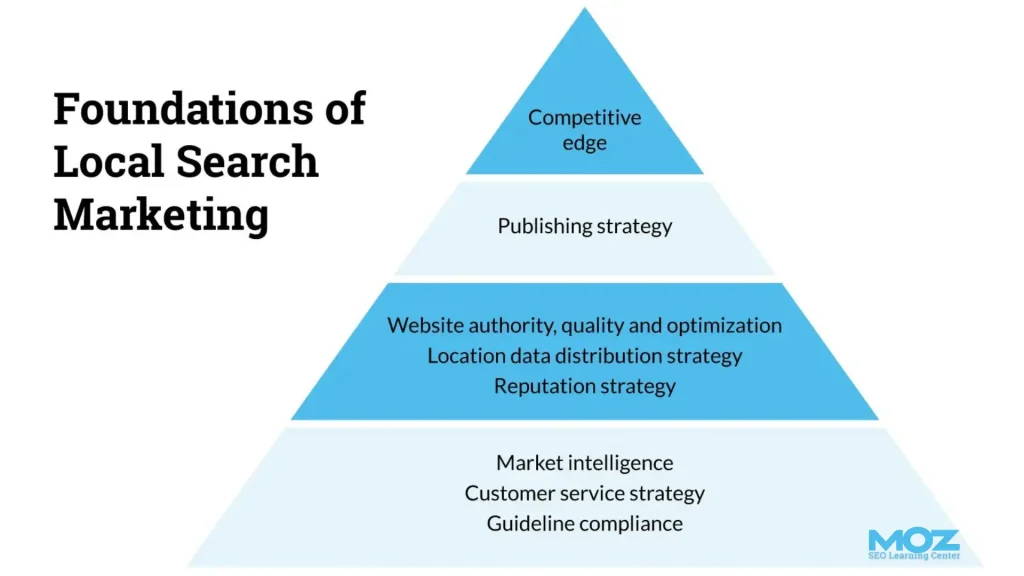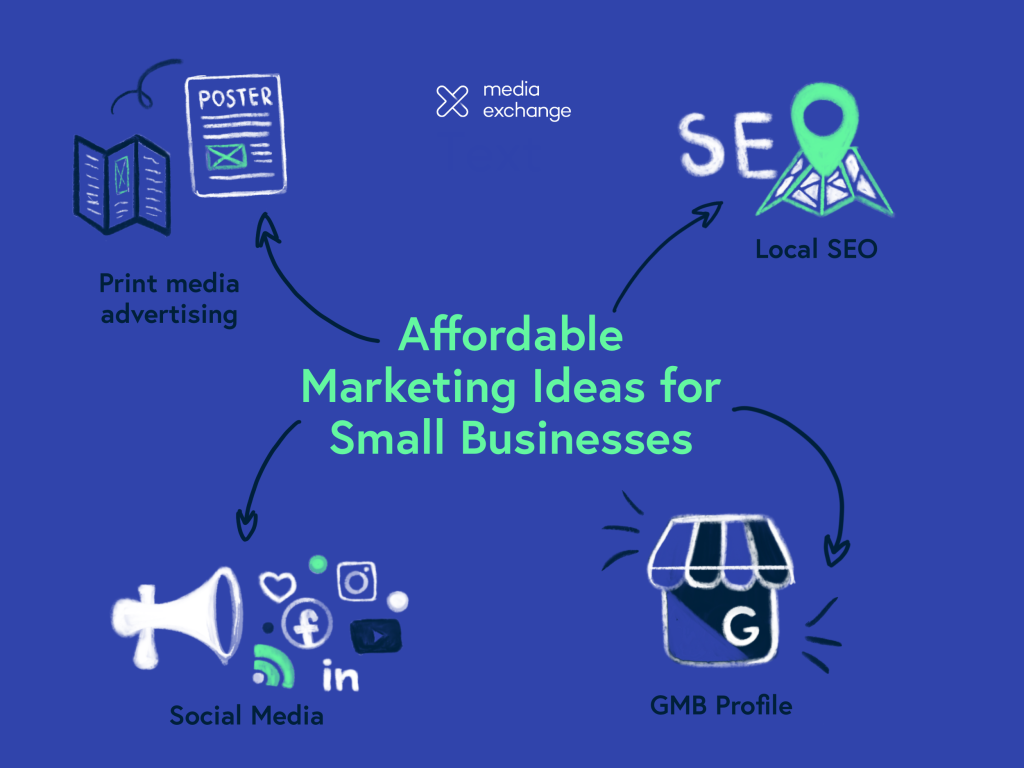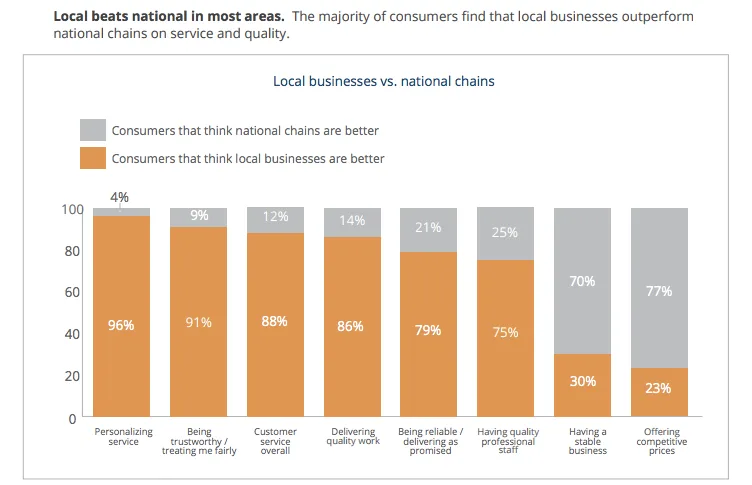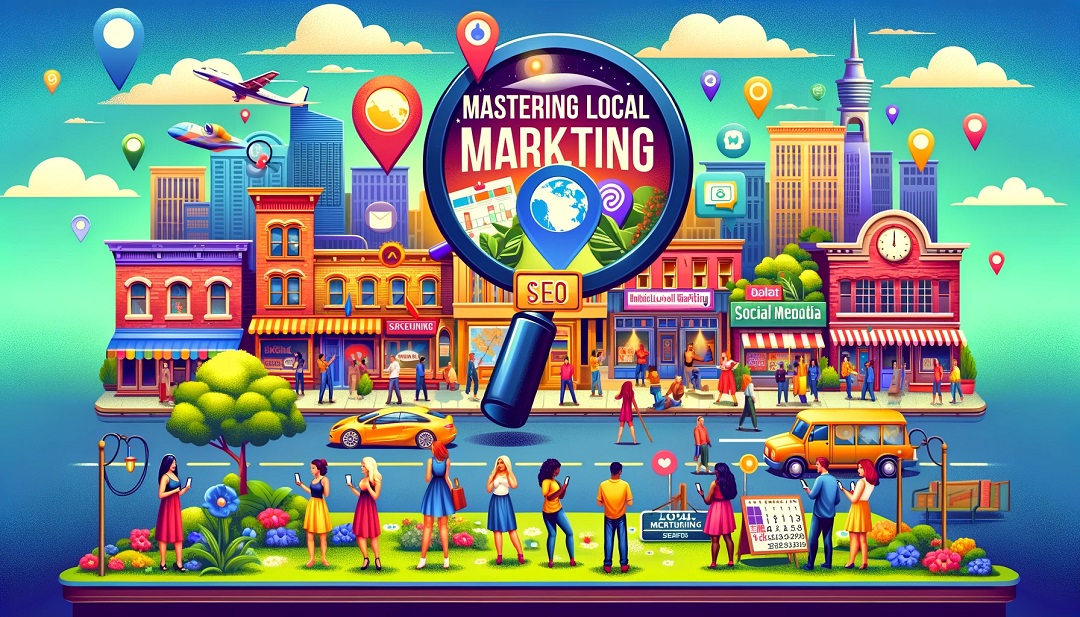Mastering Local Marketing: 3 Strategies and Tools for Success
Welcome to “Mastering Local Marketing: Strategies and Tools for Success,” where we dive into the dynamic world of local marketing. Attracting customers in your vicinity can transform your business, and we’re here to show you how. From innovative strategies to cutting-edge tools, join us on this journey to unlock the full potential of local marketing and witness remarkable growth in your business reach and customer engagement. Stay tuned for expert insights that will captivate your interest and drive action.
Table of Contents
Importance of Local Marketing
Local marketing is a strategic approach focused on reaching customers in a specific geographic area to drive traffic and sales more effectively. This approach is particularly significant for small and medium-sized businesses (SMBs) looking to establish a strong presence in their local communities. The importance of local marketing lies in its ability to create a more personalized and targeted marketing experience, which can lead to numerous benefits.
Understanding the Impact of Local Marketing
1. Enhanced Visibility and Reach
- Local SEO: Improving search engine visibility for local queries, helping businesses appear in search results when nearby customers search for relevant products or services.
- Local Listings and Maps: Ensuring presence on local business listings and maps, making it easier for customers to find physical store locations.
2. Building Community and Customer Loyalty
- Personalization: Tailoring marketing messages to local culture, events, and needs, creating a more personal connection with the audience.
- Community Involvement: Participating in local events and activities, enhancing the brand’s community presence and fostering customer loyalty.
3. Cost-Effective Marketing
- Targeted Advertising: Focusing marketing efforts on a specific geographic area, reducing wasted coverage and increasing ROI.
- Resource Optimization: Allocating resources more effectively by focusing on high-potential local markets.
4. Competitive Advantage
- Niche Market Focus: Targeting specific local markets can help businesses cater to niche audiences that larger competitors might overlook.
- Local Partnerships: Collaborating with other local businesses for cross-promotion and joint marketing efforts.
5. Adaptability and Responsiveness
- Quick Feedback: Gaining faster and more relevant feedback from local customers, allowing for swift adaptations in strategies.
- Market Understanding: Developing a deeper understanding of local market trends and customer preferences.
Practical Steps for Implementing Local Marketing
- Optimize for Local SEO: Utilize keywords that resonate with the local audience, optimize Google My Business listings, and ensure NAP (Name, Address, Phone Number) consistency across online platforms.
- Engage in Local Social Media Marketing: Tailor social media content to reflect local events, news, and trends, and engage with local community groups and pages.
- Participate in Local Events and Sponsorships: Sponsor or participate in local events, fairs, and community activities to increase brand visibility and engagement.
- Utilize Local Influencers: Collaborate with local influencers who have a strong connection with the community to promote products or services.
- Offer Localized Promotions and Deals: Create special offers or discounts tailored to local customers to encourage them to visit your store or use your services.
- Leverage Local Media: Advertise in local newspapers, radio stations, and local online platforms to reach a more focused audience.
- Collect and Showcase Local Reviews and Testimonials: Encourage local customers to leave reviews and use these testimonials in your marketing materials to build trust and credibility.
- Develop Local Partnerships: Partner with other local businesses for joint marketing campaigns or referral programs.
By focusing on these areas, businesses can effectively harness the power of local marketing to increase their visibility, connect more deeply with their community, and ultimately drive more business. This targeted approach not only helps in standing out in a competitive market but also fosters a loyal customer base that can sustain and grow the business in the long term.
Local Marketing Automation
Local marketing automation refers to using technology to streamline, manage, and measure marketing tasks and workflows in a specific local area. This approach is essential for businesses seeking to enhance their local marketing efforts efficiently. By automating repetitive tasks, businesses can focus on creating more personalized and impactful marketing strategies for their local audience.
Key Concepts and Benefits of Local Marketing Automation
1. Efficient Management of Marketing Tasks
- Automation of Repetitive Tasks: Scheduling social media posts, sending out emails, and updating local listings can be automated, saving time and resources.
- Centralized Marketing Dashboard: Using a single platform to manage various local marketing campaigns for different locations or branches.
2. Enhanced Personalization and Targeting
- Localized Content Distribution: Automatically customizing content based on the local audience’s preferences and behaviors.
- Geo-targeting in Campaigns: Implementing geo-targeting to ensure that promotional material is only seen by a relevant local audience.
3. Improved Customer Engagement and Experience
- Automated Customer Communications: Sending automated, yet personalized, messages to engage with local customers more effectively.
- Timely Responses to Customer Interactions: Using automation tools to provide prompt responses to customer inquiries and feedback on various channels.
4. Data-Driven Insights and Decision Making
- Performance Tracking: Automatically tracking the performance of local marketing campaigns and generating insightful reports.
- Customer Data Analysis: Utilizing data analytics to understand local customer preferences and behavior patterns.
5. Cost-Effectiveness and ROI
- Reduced Manpower Costs: Minimizing the need for manual labor in executing repetitive marketing tasks.
- Higher ROI on Marketing Campaigns: Through targeted local marketing strategies, businesses can achieve a higher return on investment.
Practical Implementation of Local Marketing Automation
- Choose the Right Automation Tools: Select tools that align with your business needs, such as CRM systems, email marketing software, and social media management tools.
- Set Up Localized Content Strategies: Create content templates that can be automatically customized for different local markets.
- Implement Geo-Targeting for Ads and Content: Use geo-targeting features in ad platforms and content management systems to deliver relevant content to a local audience.
- Automate Customer Communication Channels: Use chatbots and automated email responses to provide instant customer service and support.
- Utilize Data Analytics for Local Insights: Analyze customer data and campaign performance to refine local marketing strategies.
- Automate Social Media Posting: Schedule and manage posts for different local areas on various social media platforms.
- Track and Measure Local Campaign Performance: Use analytics and reporting tools to monitor the effectiveness of local marketing efforts and make data-driven decisions.
- Regularly Update Local Listings and SEO: Automate the process of updating local listings and optimizing for local SEO to ensure visibility in local search results.

By integrating local marketing automation into their strategies, businesses can significantly improve the efficiency and effectiveness of their local marketing efforts. Automation not only helps in reaching the right audience at the right time but also allows for more personalized and engaging marketing campaigns, ultimately leading to increased customer satisfaction and business growth.
Local Marketing Platform
A local marketing platform is a specialized set of tools and technologies designed to help businesses execute and manage their marketing activities more effectively at a local level. These platforms are particularly beneficial for businesses with multiple locations, franchises, or those targeting specific geographic areas. They offer a combination of various marketing tools tailored to address the unique needs and challenges of local marketing.
Practical Steps for Utilizing a Local Marketing Platform
- Selecting the Right Platform: Choose a platform that suits your business size, industry, and specific local marketing needs.
- Setting Up Local Campaigns: Create and manage local advertising campaigns, ensuring they are tailored to each specific location or region.
- Optimizing for Local SEO: Utilize tools within the platform for optimizing local search engine presence.
- Engaging with Local Social Media Audiences: Manage and tailor social media content for different local markets through the platform.
- Analyzing Local Market Data: Use built-in analytics tools to gather data on local market performance and customer preferences.
- Integrating with Existing Business Systems: Ensure the platform integrates seamlessly with your existing CRM or sales systems for streamlined operations.
- Training Team Members: Educate your team on how to effectively use the platform for local marketing efforts.
- Monitoring and Adjusting Strategies: Regularly review campaign performance and make adjustments based on analytical insights.
- Leveraging Automated Marketing Features: Automate routine tasks like email sending schedules, social media postings, and local ad adjustments.
- Maintaining Brand Consistency: While customizing for local markets, maintain a consistent brand voice and identity across all locations.
A local marketing platform can significantly streamline the process of managing and executing local marketing strategies. By providing tools for localized content creation, targeted advertising, and detailed analytics, these platforms enable businesses to connect more effectively with their local audiences, ensuring that their marketing efforts are relevant, effective, and efficient.
V. Local Marketing Vault Review A. In-depth review of the Local Marketing Vault B. User experiences and case studies C. Pros and cons of using the Local Marketing Vault
Local Marketing Vault Review
The Local Marketing Vault is a program or platform designed to assist businesses in executing effective local marketing strategies. It typically offers tools and resources to help businesses target and engage with customers in their specific geographic area. This review will cover various aspects of such a platform, considering its practicality and how it integrates various marketing concepts.
Overview of the Local Marketing Vault
Key Features
- Targeted Marketing Tools: Provides tools specifically designed for targeting local markets, such as local SEO optimization, geo-targeting for ads, and localized content creation.
- Training and Resources: Often includes training materials and resources to educate users on best practices for local marketing.
- Analytics and Reporting: Offers analytics capabilities to track the success of local marketing campaigns and measure ROI.
Benefits
- Enhanced Local Visibility: Helps businesses increase their visibility in local search results and within the community.
- Customized Marketing Approaches: Allows for the customization of marketing strategies to suit specific local needs and preferences.
- Streamlined Marketing Efforts: Provides a centralized platform for managing various local marketing activities, making the process more efficient.
Practical Evaluation of the Local Marketing Vault
User Experience
- Ease of Use: Assessing how user-friendly and accessible the platform is for businesses of different sizes and technical abilities.
- Integration with Other Tools: Evaluating how well it integrates with existing marketing tools and business systems.
Effectiveness
- Success Stories and Case Studies: Looking at real-world examples of businesses that have successfully used the platform to enhance their local marketing.
- Measurable Results: Analyzing the tangible outcomes businesses have achieved, such as increased foot traffic, higher search rankings, or improved sales.
Support and Resources
- Customer Support: Reviewing the quality and responsiveness of customer support offered.
- Continual Learning: Evaluating the quality and relevance of the training and educational resources provided.
Cost-Effectiveness
- Pricing Structure: Considering the affordability and value for money of the platform.
- ROI Analysis: Assessing whether users typically see a return on their investment when using the platform.
Considerations for Potential Users
- Identify Specific Needs: Understand your specific local marketing needs before investing in any platform.
- Free Trials and Demos: Look for opportunities to trial the platform or view a demo to ensure it meets your requirements.
- Seek User Testimonials: Research reviews and testimonials from other users to gauge real-world effectiveness.
- Assess Long-Term Value: Consider not just the immediate benefits but also the long-term value the platform could bring to your local marketing efforts.
A thorough review of the Local Marketing Vault or similar platforms should provide businesses with a clear understanding of how such a tool can aid in their local marketing strategies, helping them make an informed decision about whether it is a suitable investment for their specific needs.
VI. Local Marketing Experts A. Profiles of prominent local marketing experts B. Insights and tips from these experts C. How these experts have influenced local marketing strategies
Local Marketing Experts: Introducing Mansour Co as a Leading Authority
Local marketing experts play a crucial role in guiding businesses to effectively target and engage with their local communities. In this context, Mansour Co. emerges as a prominent name, bringing a wealth of experience and innovative strategies to the table. Their expertise in local marketing helps businesses maximize their reach and impact within specific geographic areas.
Overview of Mansour Co’s Expertise in Local Marketing
Background and Experience
- Established Reputation: Mansour Co is known for its deep understanding of local market dynamics and consumer behaviors.
- Diverse Clientele: They have a proven track record of working with a wide range of businesses, from small local startups to larger corporations seeking a localized approach.
Core Competencies
- Local SEO Mastery: Expertise in optimizing businesses for local search, ensuring they rank highly in location-based queries.
- Geo-Targeted Advertising: Skilled in creating and managing advertising campaigns that specifically target local audiences.
- Content Localization: Ability to tailor content to resonate with local cultures and trends, enhancing relevance and engagement.
Innovative Strategies
- Hyper-Local Focus: Developing strategies that not only target a city or region but drill down into specific neighborhoods or communities.
- Integration of Digital and Traditional Methods: Combining digital marketing techniques with traditional local advertising methods for a holistic approach.
Practical Insights from Mansour Co
Effective Local Marketing Tactics
- Community Engagement: Strategies for engaging with local communities through events, sponsorships, and partnerships.
- Local Influencer Collaborations: Utilizing local influencers to amplify brand presence and credibility.
Leveraging Technology for Local Marketing
- Data-Driven Decision Making: Utilizing analytics to understand local customer preferences and tailor marketing efforts accordingly.
- Automation in Local Marketing: Implementing automation tools to streamline local marketing processes efficiently.
Measuring and Analyzing Local Marketing Success
- KPIs for Local Marketing: Identifying key performance indicators relevant to local marketing campaigns.
- ROI Analysis: Assessing the return on investment for various local marketing initiatives.
Recommendations from Mansour Co
- Understand Your Local Market: Emphasize the importance of in-depth research into local market trends and customer behaviors.
- Personalize Your Approach: Encourage businesses to personalize their marketing messages to suit the local audience.
- Stay Adaptable: Highlight the need to be flexible and adaptable in strategies to respond to local market changes.
- Invest in Relationships: Advice on investing in long-term relationships with local customers, influencers, and other businesses.
Mansour Co’s approach exemplifies the importance of specialized knowledge in effectively navigating the unique challenges and opportunities of local marketing. Their expertise underlines the necessity for businesses to understand and adapt to their local markets deeply, utilizing a mix of traditional and digital marketing strategies. By following the insights and recommendations of such local marketing experts, businesses can significantly enhance their local presence and connection with their community.
Grow Local Marketing: Embracing Hyperlocal Social Media Marketing
In the quest to grow local marketing efforts effectively, the concept of Hyperlocal Social Media Marketing emerges as a powerful strategy. This approach focuses on creating and sharing content that is highly relevant to a specific local area or community, leveraging social media platforms to engage directly with a geographically targeted audience.
Understanding Hyperlocal Social Media Marketing
Definition and Scope
- Targeted Approach: Concentrates on very specific, often small, local areas or communities.
- Community-Centric Content: Involves creating content that resonates deeply with the local culture, events, and issues.
Key Benefits
- Increased Relevance and Engagement: By tailoring content to local interests, businesses can see higher engagement rates.
- Stronger Local Relationships: Helps build stronger connections with the local community, enhancing brand loyalty.

Strategies for Implementing Hyperlocal Social Media Marketing
1. Localized Content Creation
- Community Events and News: Share and comment on local events, news, and issues relevant to the community.
- Local Testimonials and Stories: Feature stories or testimonials from local customers to add a personal touch.
2. Geo-Targeted Social Media Advertising
- Precise Targeting Settings: Use the geo-targeting features on social media platforms to reach audiences in specific locations.
- Local Offers and Promotions: Create ads for special offers or events that are exclusive to the local area.
3. Engaging with Local Audiences
- Active Community Participation: Participate in local online groups and forums related to the business’s niche.
- Responding to Local Queries: Actively respond to comments and queries from local followers.
4. Collaborating with Local Influencers
- Local Influencer Partnerships: Partner with influencers who have a strong following in the local area.
- Community-Based Campaigns: Collaborate on campaigns that specifically cater to local interests and needs.
5. Utilizing Local Hashtags
- Hashtag Research: Research and use local hashtags relevant to your business and community.
- Branded Local Hashtags: Create unique hashtags for your local marketing campaigns to enhance discoverability.
6. Monitoring and Analytics
- Track Engagement and Reach: Use analytics tools to monitor the effectiveness of hyperlocal campaigns.
- Adapt and Optimize: Continuously adapt strategies based on analytics insights to better target the local audience.
Practical Tips for Maximizing Impact
- Understand Your Local Audience: Research to understand the interests, preferences, and demographics of your local audience.
- Consistent Local Branding: Ensure that your local branding is consistent across all social media channels.
- Integrate with Other Local Marketing Efforts: Align hyperlocal social media marketing with other local marketing activities for a cohesive strategy.
- Regularly Update Content: Keep your social media feeds updated with fresh, relevant content that reflects local happenings.
- Encourage User-Generated Content: Motivate local customers to share their experiences with your brand on social media.
Hyperlocal social media marketing is a targeted and community-focused approach that can significantly boost a business’s local marketing efforts. By engaging with local audiences on topics and issues that matter to them, businesses can grow their presence and influence within the community, fostering loyalty and driving local sales.

Conclusion
In conclusion, implementing hyperlocal social media marketing is a powerful strategy to enhance local marketing efforts, offering personalized engagement and stronger community connections. By tailoring content to local interests, leveraging geo-targeted advertising, and collaborating with local influencers, businesses can significantly increase their local presence and customer loyalty. We invite you to share your thoughts and experiences in the comments below – how have you implemented hyperlocal strategies in your marketing efforts, and what impact have they had on your business?


